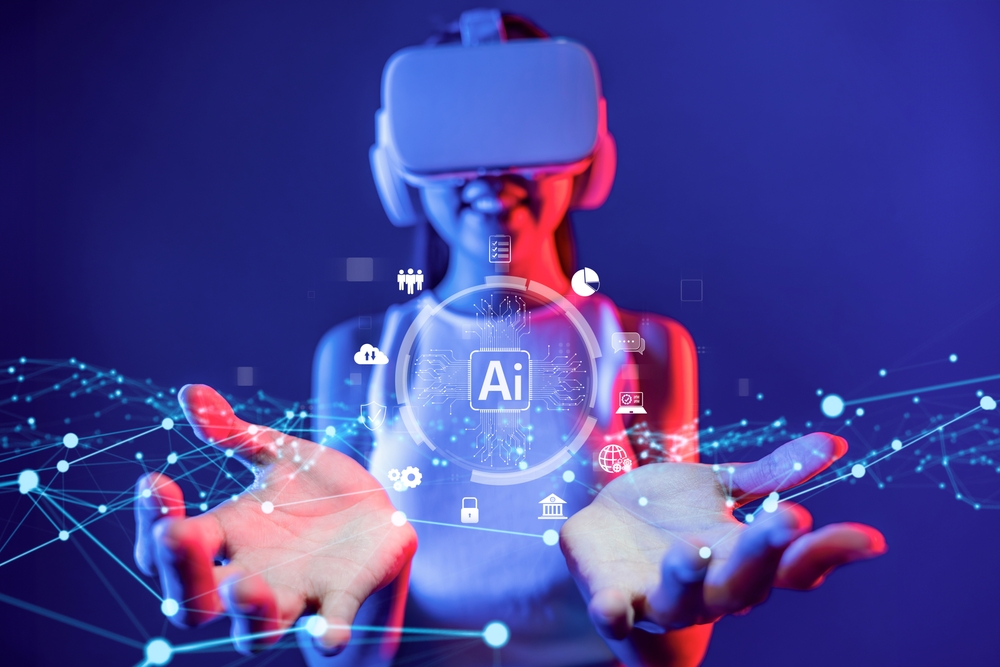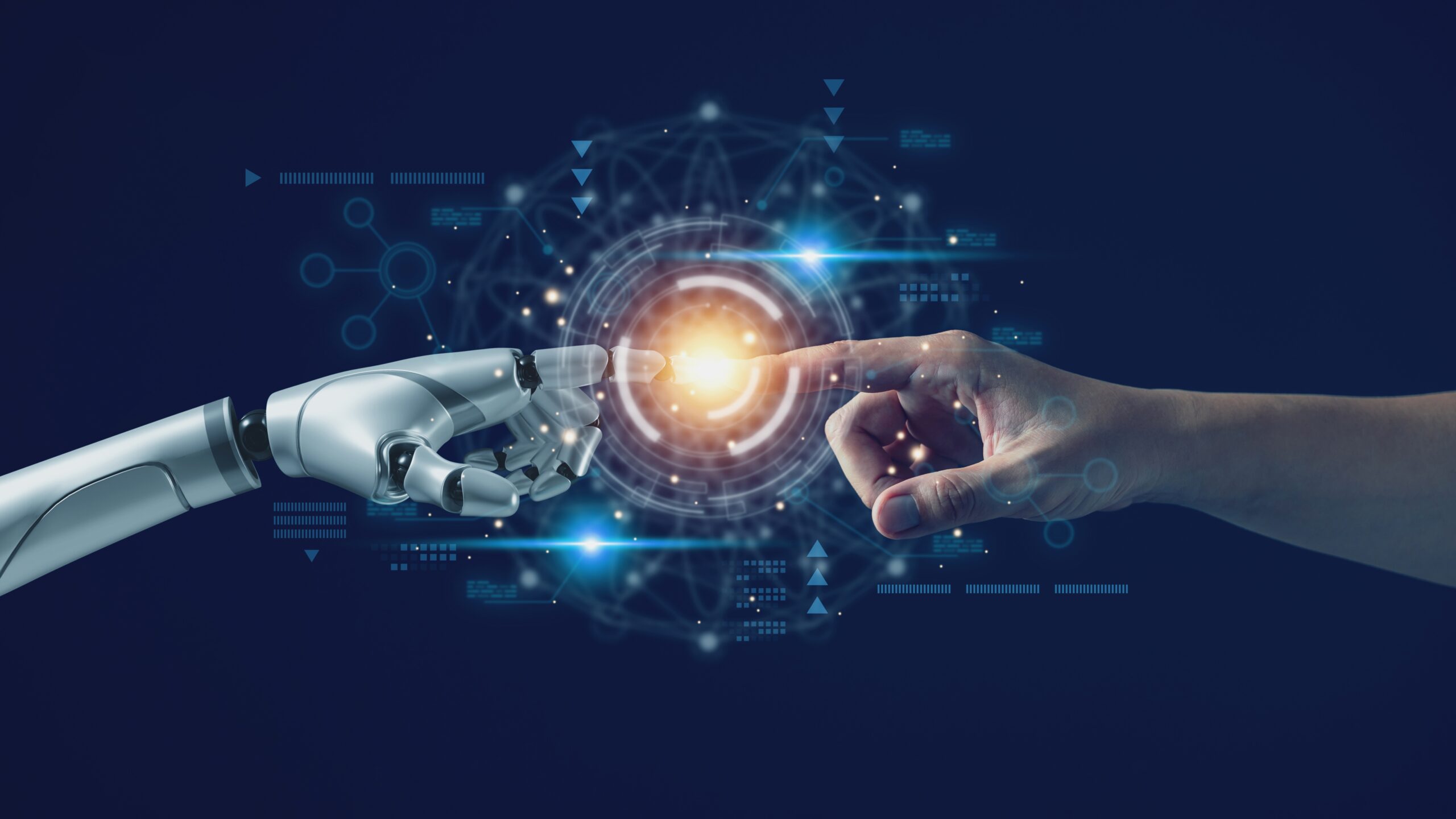Artificial Intelligence
The Power of Artificial Intelligence: Transforming Industries and Shaping the Future
Artificial Intelligence (AI) is no longer a futuristic concept – it’s a present-day reality that is rapidly transforming industries across the globe. From enhancing customer experiences to automating complex processes, AI is revolutionizing how we work, learn, and live. In this blog, we’ll explore the power of AI, its applications across various sectors, and the opportunities it brings for businesses and individuals alike.
What is AI?

At its core, Artificial Intelligence refers to the ability of machines to mimic human intelligence processes, such as learning, reasoning, problem-solving, and decision-making. Through machine learning, neural networks, and deep learning, AI systems can analyze vast amounts of data, recognize patterns, and make predictions or decisions without human intervention.
While AI is often associated with robots or autonomous machines, its impact is much broader and touches virtually every industry. Let’s take a look at how AI is reshaping the world around us.
AI in Business: Efficiency and Innovation
One of the most significant impacts of AI is in the business world. Companies are leveraging AI to streamline operations, improve decision-making, and provide better services to their customers.
- Automation of Routine Tasks: AI-powered systems can automate repetitive tasks such as data entry, scheduling, and inventory management. This not only saves time but also reduces human error and increases efficiency. Employees can then focus on higher-value tasks that require creativity and strategic thinking.
- Predictive Analytics for Better Decision Making: AI uses vast amounts of data to make predictions, uncover trends, and provide actionable insights. Predictive analytics can help businesses anticipate market trends, improve customer service, and optimize product offerings. For example, retail businesses use AI to predict demand for products, allowing them to adjust inventory levels and avoid stockouts.
- Enhanced Customer Experience: AI is transforming customer service with the use of chatbots and virtual assistants. These AI-powered tools can answer customer inquiries, resolve issues, and provide personalized recommendations, creating a more seamless and efficient customer experience.
AI in Healthcare: Revolutionizing Patient Care
AI is also making remarkable strides in healthcare, where it is helping medical professionals provide more accurate diagnoses, improve patient outcomes, and reduce costs.
- AI-Powered Diagnostics: Machine learning algorithms can analyze medical images, detect early signs of diseases like cancer, and assist in diagnosing conditions more accurately than traditional methods. For example, AI-based systems like IBM Watson Health are already helping doctors identify potential health risks and suggest treatment options based on patient data.
- Personalized Treatment Plans: AI helps create tailored treatment plans for patients by analyzing their medical history, genetic data, and lifestyle factors. This personalized approach to healthcare is not only improving patient outcomes but also reducing the time and cost of trial-and-error treatments.
- Virtual Health Assistants: Virtual assistants powered by AI can provide patients with 24/7 access to medical advice and monitoring. These tools can help individuals track their health metrics, offer reminders for medication, and even detect signs of illnesses before they become critical.
AI in Education: A New Era of Learning
Education is another sector that is being revolutionized by AI. From personalized learning experiences to smarter classrooms, AI is making learning more accessible and engaging.
- Personalized Learning: AI can adapt to each student’s learning style and pace, offering personalized lessons that cater to individual needs. For instance, platforms like DreamBox and Squirrel AI are using machine learning to adjust lessons in real-time based on a student’s strengths and weaknesses.
- Smart Classrooms and Virtual Learning: AI-powered tools can create smarter, more interactive learning environments. Virtual tutors, AI-driven learning platforms, and smart classrooms with AI integration help enhance engagement, automate grading, and provide valuable insights into student performance.
- Administrative Automation: AI also aids in administrative tasks like grading, scheduling, and managing learning resources, allowing educators to focus more on teaching and less on time-consuming administrative duties.
AI in Marketing: Smarter Strategies and Better ROI
Marketing has seen a massive shift due to AI, as brands can now engage with their audiences more effectively and measure the impact of their campaigns with greater precision.
- Targeted Advertising: AI enables brands to understand customer behavior better and create hyper-targeted ads. By analyzing vast amounts of data, AI can predict which products customers are likely to buy, when they’re likely to buy them, and through which channels. This leads to more personalized and effective marketing campaigns.
- Chatbots and Customer Engagement: AI-driven chatbots are improving customer engagement by offering real-time assistance and providing immediate responses to inquiries. This not only improves the customer experience but also increases conversion rates and sales.
- Content Creation and Curation: AI tools like GPT-3 are helping content creators produce high-quality material at scale. From writing blog posts to creating product descriptions, AI is streamlining content creation, saving time, and allowing marketers to focus on more strategic tasks.

Challenges and Ethical Considerations
Despite the numerous benefits AI brings, there are challenges and ethical concerns that need to be addressed. Issues such as data privacy, algorithmic bias, and the impact of AI on jobs and employment must be carefully considered as AI continues to evolve.
- Bias in AI: AI systems are only as good as the data they’re trained on. If the data is biased, the AI’s decision-making could also be biased, leading to unfair outcomes in sectors like hiring or law enforcement.
- Data Privacy: With AI systems collecting vast amounts of data, protecting user privacy is a growing concern. It’s crucial for companies to ensure that AI technologies are secure and that personal data is handled responsibly.
- Impact on Jobs: While AI has the potential to create new job opportunities, it may also lead to the displacement of certain jobs, especially those that involve repetitive tasks. It’s essential to find a balance between embracing AI innovation and ensuring a fair workforce transition.
The Future of AI: Limitless Possibilities
The future of AI is incredibly exciting. As technology continues to evolve, AI will become even more integrated into our everyday lives. From self-driving cars to smarter homes and more advanced medical treatments, the potential applications of AI are limitless. However, for AI to reach its full potential, continued research, development, and thoughtful consideration of its ethical implications will be necessary.
As we move into the future, AI will undoubtedly play a central role in shaping how we live and work, creating a world that is more connected, efficient, and intelligent.
AI is not just transforming industries – it’s shaping the future of humanity. From healthcare to education, marketing to business operations, AI is enabling smarter, more efficient solutions to some of the world’s biggest challenges. As we continue to innovate and adapt to this technology, AI’s impact will only grow, offering limitless possibilities for both businesses and individuals.


